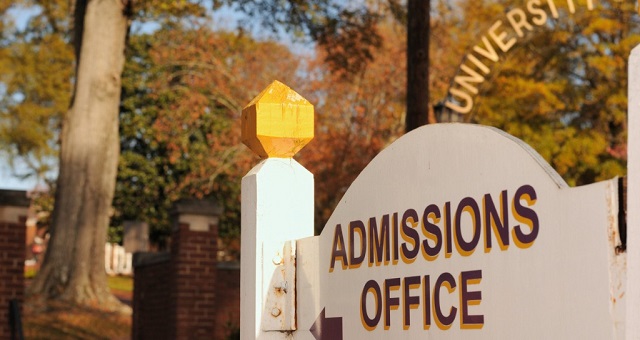I remember that when I started my first job as a college admissions counselor, one of the interview questions was, “Do you see the role of admissions counselors more as counseling or as sales?” I had no experience, so I really didn’t know the right answer. Since the word “counselor” was in the title of the position, I imagine I said something about counseling students.
At the time, I had no idea that this question represented a change that was taking place in the college admissions profession. The counseling mind-set was gradually being replaced at many institutions by an increasing focus on a sales approach. “Marketing” was still a dirty word on a few campuses, but those campuses were becoming the exception. New technology was making data much easier to collect and track, and working each stage of the enrollment funnel was becoming standard practice.
The counseling versus sales question has persisted in interviews across the country. I heard it again last week in a training exercise for new counselors. Now it is largely a trick question, used to convince new staff that they need to be ready for aggressive recruitment efforts.
Counseling or sales?
Most colleges and universities have moved firmly into the camp of thinking of college admissions as sales. You can still find pockets where the philosophy remains counseling-based, but they are rare. I believe this change has been a contributing factor in the high turnover in the profession. People tend to stay in counseling positions longer, while those in sales tend to either move up or move out.
Personally, I have never been convinced that either of these descriptors fully or accurately describes what college admissions counselors do. I have experience with both. Previous to my first admissions job, I worked in sales and was quite content to leave it for higher education. Later in my career, I also spent time as a career counselor, working with individual students to help them discover the right career match. Neither of these roles fully captures the essence of what admissions professionals do.
Sometimes I think of college admissions counselors primarily as ambassadors. More than the sales professional or the counselor, admissions staff workers are there to embody the university. I visualize the admissions counselor at the college fair table or on a high school visit like a mobile embassy, waving the institution’s flag.
Although admissions counselors certainly have individual territory goals, they also spend a significant portion of their time building relationships that are more like alliances as they work with school counselors to increase the reputation of the university beyond just a base of customers.
Off the rack, or tailored to fit?
Perhaps my favorite comparison for college admissions staff, however, is a metaphor that I often use in training new counselors. I tell them that when they need everyday clothing they go to a store and buy it off a rack, but when they need something special they go to a place where they can have it tailored.
I ask them to imagine that they are going to purchase a suit or a wedding dress. When they find something they like, a tailor checks it, measures it, and pins it into a shape that will fit them better. The tailor is able to show them how good they could look if they purchased the suit or dress and it was fitted to them perfectly.
It is not the tailor’s job to pressure them into a sale but to help them imagine what they could look like if they made the purchase. If they like the way they look and can see themselves wearing the garment, they purchase. If not, they go to another store and try on something else.
This comparison works for me because it allows counselors to strive for excellence and true personalization in marketing the university’s offerings without feeling it is their job to make a sale at any cost. At the same time, it is a reminder that the student wants to make a college purchase, and that despite all the stress, the process is an exciting one.
Admissions “customers” are coming to the admissions counselor at a time of major transition and celebration, and it is the counselor’s job to help students imagine the future. What I have observed is that when the service is truly superior and incredibly personalized, the sale happens naturally.
If you can truly help students see what they could become at your university, they will often choose it. If you have done everything you can to tailor the match and they decide to walk away, however, as an admissions counselor you can let them go with a clear conscience and refer them to another option.
I will admit that this comparison may not be as easy for young professionals to relate to as it once was. After all, people purchase less tailored clothing now than they did in decades past. Perhaps buying something else highly personalized would be an easier comparison for counselors to visualize. But that is precisely the point. Choosing a college is not like purchasing a new smartphone. It is a choice that should have some gravitas to it, and that is exactly why making it a tailored experience is so important.
I plan to drop the “counseling versus sales” question from our future interviews. Instead, I will ask potential candidates about their own experiences with highly personalized purchases. I will ask them how they will help students envision themselves finding success on our campus. I will challenge them to think of themselves as neither a salesperson nor a counselor, but as the person who helps students try on the future to see how good they can look.
Aaron Basko is assistant vice president of enrollment management at Salisbury University.
Reprinted from “Tailoring the Admissions Experience” in Recruitment and Retention 30.1(2016)7 © Magna Publications. All rights reserved.



